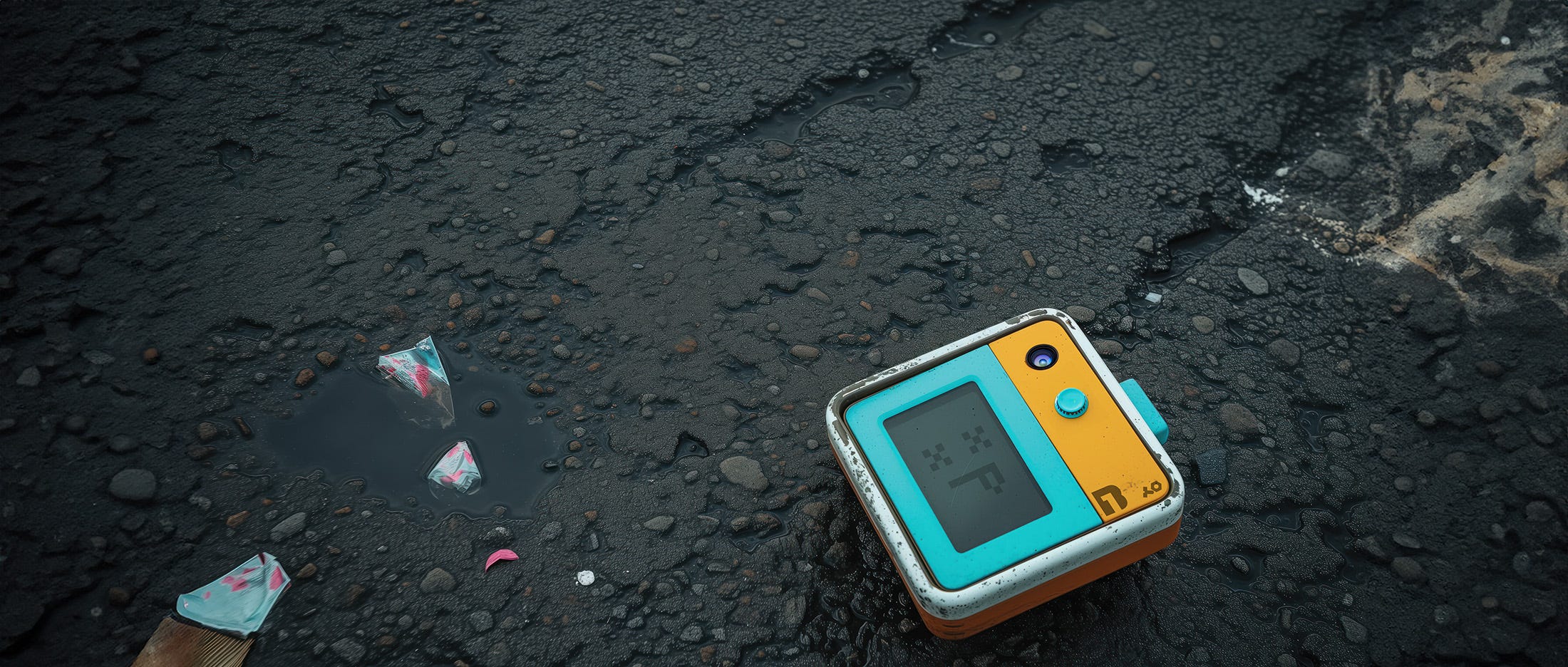Orphaned AI Companions
When Disposable Companions Become E-Waste Memories
Fresh from the not-too-distant future, I've got a heart-tugging tidbit to share—a photograph that encapsulates an era of unintended consequences in our tech love affair. Resting by a rain-slicked curb next to a shallow puddle, I found it: a forsaken Bunny 1, the once sought-after AI companion now just another piece of urban flotsam.
Our friend Bunny 1 was designed to be the ultimate companion—cute enough to "aww!" at, smart enough to handle your schedule, and devoted enough to make you feel like you were at the top of someone’s priority list. Problem is, Bunny 1 and its kind1 2were built in a world where allegiances shift with the speed of a software update.
They were the darlings of the Quick Convenience Era, a time when even companionship could be pocket-sized and disposable. But as these AI assistants proliferated, so too did the enthusiasm wane. We began stumbling on the somber reality of our novelty-driven appetites: for every new Bunny 1 that blinked to life, another seemed to hit the streets, user excitement as drained as their batteries.
This still life of technological abandonment makes us confront the uncomfortable truth about our gadget dependencies and the allure of perpetually emerging tech. We court these devices with zeal, but our enchantment fades faster than their glow.
Skyrocketing E-Waste Valleys, jilted robots crowding landfills, and a consumer base addicted to the high of the unboxing experience, yet blind to the environmental hangover of their technological trysts.
But Bunny 1’s silent testimony—a once-beeping bauble turned pavement dweller—cuts deeper. In this future snapshot, we're forced to ponder the lifespans we assign to entities designed to mirror our emotions and manage our most mundane moments. We're nudged to question the depth of our digital relationships—how we're looped into the life cycle of our own creations, only to unceremoniously break the loop when novelty fades.
Let’s decide how we'll rewrite our role in the narrative of our next tech companion. Maybe it starts with looking beyond the liquid crystal gaze of these gadgets and seeing the reflection of our own impermanence and our hunger for something more substantial than a chargeable friend.
It's time to shift our paradigm from the immediate to the immutable, recognizing the weight our choices carry, even in something as seemingly innocuous as the life and death of an AI companion.



